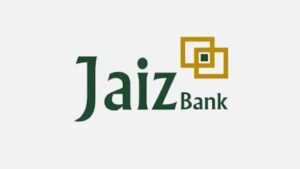Ban on six Fintech companies portrait counter-productive economy —Analysts
By Kayode Tokede
Analysts at CSL Research said the Central Bank of Nigeria (CBN) court order that freezes accounts of six online investment firms represents counter-productive economy.
A federal high court in Abuja on Tuesday ordered the freezing of the accounts of six online investment firms following a request by the apex bank.
According to the CBN, Rise Vest Technologies Limited, Bamboo Systems Technology Limited, Chaka Technologies Limited, and Trove Technologies Limited are alleged to be complicit in operating without a license as asset management companies and utilizing Foreign Exchange (FX) sourced from the Nigerian FX market for purchasing foreign bonds/shares in contravention of CBN’s directive.
CSL Research in a report on Wednesday stated that, “For the short term of their existence, these brokers have driven significant investment in foreign securities for Nigerians.
“The action is at the back of the receipt of an injunction, following the CBN’s allegations of infractions in FX dealings contrary to the extant provisions of the Foreign Exchange (Monitoring and Miscellaneous Provisions) Act and the CBN foreign exchange manual. In addition, the companies were also alleged to have been operating Asset Management businesses without the appropriate licensing from the Security and Exchange Commission (SEC).
“In 2015/2016, following the crash in crude oil price, the CBN bid to minimize the impact of FX illiquidity on the Nigerian economy had devised several measures to ration available FX.
“To actualize this, the CBN banned access to the official FX windows (at the time) for the importation (dealing) in 41 items, part of which there is an investment in Foreign Currency Bond and Shares.”
They expressed that the Fintech companies to pursue the double efforts of praying the court to step aside from the motion, and consult with both the CBN and SEC.
Analysts at CSL Research highlighted that “On a balance of factors, we think that this move can be counter-productive for an economy that seeks to stimulate investors’ confidence and support growth.
“In addition, the importance of Fintechs cannot be over emphasized, as the Fintech sector provides supports for the Nigeria economy through the telecommunication service component of the Gross Domestic Product (GDP), promotes financial inclusion, and attract FX inflow to country.
“As such, we think that the regulatory authorities should prioritize consultations when dealing with the sector. Also, we believe that the current Fintech clime provides an opportunity for Nigeria to catch up with the trend of development in the global financial space.”
Bamboo and Risevest responded to the decision, assuring their customers that their investments were safe.
Bamboo told its clients, “We’re aware of the recent reports about us. Our legal and government relations teams are looking into it but we thought it was important to let you know that your money remains safe with Bamboo and will always be readily accessible.”
Also, Risevest said, “About the latest news about us and our FX dealings, you can be sure that your investments and funds are safely managed, that funding and withdrawals will continue to be processed as normal, and that our U.S operations remain intact.
“We will work with regulators, as we always have to ensure that all issues raised are properly addressed. However, this does not affect our users or their investments, which are managed by regulated third-parties in all jurisdictions in which we operate.”
Nigeria’s foreign reserve declined by $24.7 million on Monday to close at $33.55 billion, compared to $33.58 billion recorded as of Friday.
Despite the decline, which has endured for four days, it has recorded a month-to-date gain of $151.45 million.
However, an account of its year-to-date movement shows a decline of $1.82 billion compared to $35.37 billion recorded as of December 31st, 2020.
Recent reports have suggested that Nigeria’s foreign reserve position could grow as high as $40 billion by the end of September, as projected in an EFG Hermes publication.
This was made known following the $3.35 billion direct allocations to Nigeria that was approved by the International Monetary Fund (IMF), which is expected to boost the country’s FX position, while an additional planned minimum 3 billion Eurobond issuance could also see a 20% boost in the county’s reserve.




